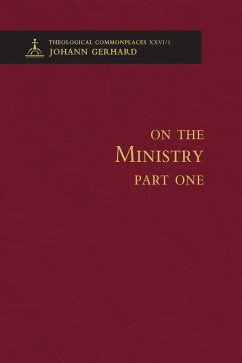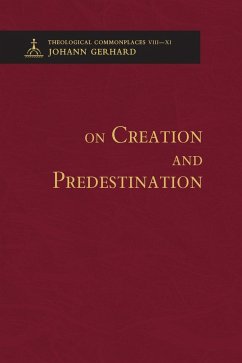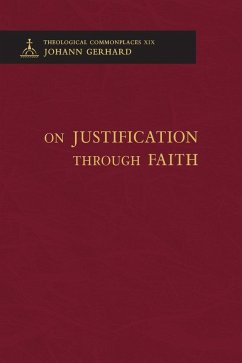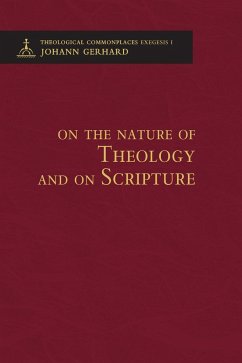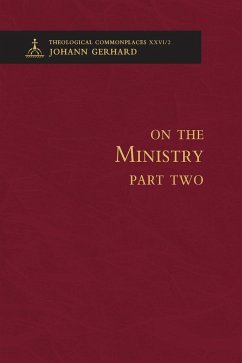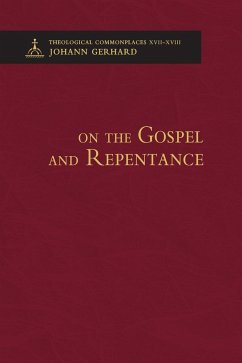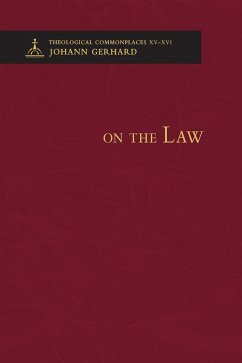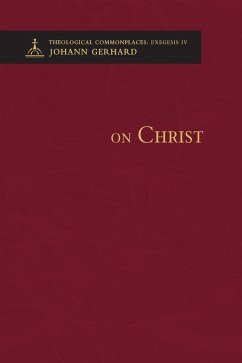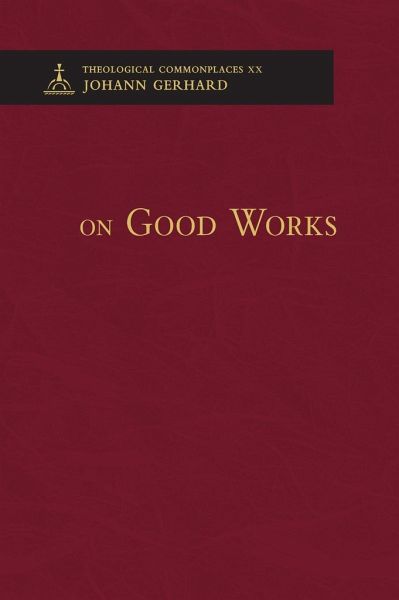
On Good Works - Theological Commonplaces
Versandkostenfrei!
Versandfertig in 1-2 Wochen
71,99 €
inkl. MwSt.

PAYBACK Punkte
36 °P sammeln!
About This Volume On Good Works was written both in opposition to antinomianism and to Rome's claims of moral perfection in this life.First, Gerhard makes clear through the analogy of faith the fact that the regenerate faithful are not free concerning whether they do good works or not. Works flow from living faith and are necessary by God's command, the order of reason, and one's duties. These works are both a consequence of and a maintenance of faith. Concerning the works themselves, Gerhard distinguishes between morally good works done in faith and outside faith. In faith, good works are rig...
About This Volume On Good Works was written both in opposition to antinomianism and to Rome's claims of moral perfection in this life.First, Gerhard makes clear through the analogy of faith the fact that the regenerate faithful are not free concerning whether they do good works or not. Works flow from living faith and are necessary by God's command, the order of reason, and one's duties. These works are both a consequence of and a maintenance of faith. Concerning the works themselves, Gerhard distinguishes between morally good works done in faith and outside faith. In faith, good works are rightly pleasing to God, though Gerhard argues that in this life good works do not achieve perfection. Outside of faith, works cannot please God insofar as the end of these works is not love of God. The longest chapter of this volume "On the Merits of Good Works" concludes that human works are never meritorious for salvation-due to their imperfection-but that God does reward good works. About This Series The Theological Commonplaces series is the first-ever English translation of Gerhard's monumental Loci Theologici. Gerhard was the premier Lutheran theologian of the early seventeenth century. Combining his profound understanding of evangelical Lutheran theology with a broad interest in ethics and culture, he produced significant works on biblical, doctrinal, pastoral, and devotional theology. Gerhard interacts with the writings of the church fathers, Luther and his contemporaries, and the Catholic and Calvinist theologians of his day. His 17-volume Loci is regarded as the standard compendium of Lutheran orthodoxy, with topics ranging from the proper understanding and interpretation of Scripture to eschatology. Useful for research on Lutheran doctrine, Gerhard's accessible style makes this a must-have on the bookshelf of pastors and professional church workers. Each embossed hardback volume includesthe translation of Gerhard's Loci (originally published from 1610 to 1625) ¿ a glossary of key theological, rhetorical, and philosophical terms ¿ a name index ¿ a Scripture index ¿ a carefully researched works cited list that presents guidance for deciphering the numerous abbreviations of the other titles from which Gerhard quotes.





